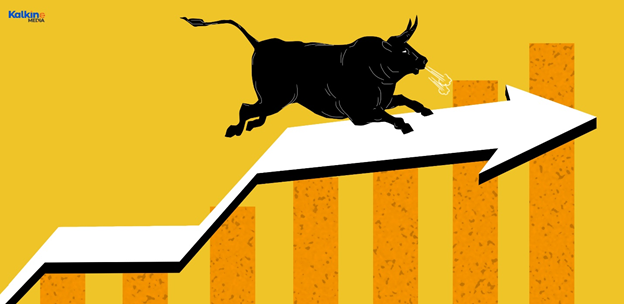Definition
Related Definitions
Direct Market Access
What is Direct Market Access (DMA)?
Direct Market Access (DMA) defines as an electronic method of trading where investors can do trade directly through an electronic order book. An electronic order book implies the book of financial market exchanges that record all the placed orders by buyers and sellers in the stock exchange and until the orders are completed by matching the desirable price of a seller and buyer it remain in the book.

Copyright © 2021 Kalkine Media
Understanding Direct Market Access (DMA)
The Direct Market Access (DMA) is an electronic method that connects investors directly to financial market exchanges and that completes the securities transactions final. Exchanges refer the organised marketplaces where financial securities are traded such as commodities, stocks, derivatives, and other financial instruments; the London Stock Exchange (LSE), the New York Stock Exchange (NYSE), and the NASDAQ are the most common exchanges. Direct market access provides access to an electronic order book to the investor, order book records all the records placed by a buyer or seller. An order is said to be fulfilled when the prices of a seller or a buyer matched that means an order remains in the book until the price at which a seller wants to sell matched with the price at which a buyer wants to buy.
Individual investors may not have direct market access to the exchanges. Intermediary brokerage firms completed the transactions of financial securities through direct market access to the exchanges. There are several broker dealers and sell-side investments banks have direct market access and execute the trades by operating operate direct market access platforms.
Frequently Asked Questions (FAQs)
What is the significance of Direct Market Access?
Individual investors and traders faced many difficulties in direct market access as it provides the access to strategies of trading including algorithmic trading. Hence, direct market access suggested for the advanced traders only as they have experience. Direct market access (DMA) ease trading in any exchange and any traded financial security on the stock exchange. Investors may trade in various securities including financial derivatives, equities, fixed income securities and other financial instrument.
Direct market access is also recommended to the investors who are interested to invest in large volumes of transactions. Direct market access (DMA) is better to meet the requirement of execution of large volume of orders. Additionally, Private traders, the buy-side firms such as investment banks engaged in providing services for direct market access (DMA). There are several brokerage firms which offer the services of direct market access that allows investors to place orders directly on the order book.

Copyright © 2021 Kalkine Media
What are the advantages of Direct Market Access?
Advantages of Direct Market Access are as follow:
- Access to the market: Investors have direct and fast access to the market through direct market access (DMA), there is no more involvement of a broker in the process of trading that increases the execution speed and reduces the cost of a transaction.
- Transactions managed by investor: Since investors perform the trading process through direct market access without any involvement of broker. The investors have the control and manage the trade order and transactions.
- Market auctions: Through direct market access (DMA), the investors have the opportunity to be a participant in auctions (pre-market and post-market).
- Confidential information: As the transactions are managed by the investor itself, the risk of the confidentiality of information related to investor’s name, bank details, address is very low. There is no involvement of third party that makes the investors’ information more confidential. In trading through direct market access, investors use the identity provided by direct market access instead of their own.
- High-frequency trading: Through direct market access (DMA), investors may have access to high-frequency trading. It is a kind of algorithmic trading technique that uses trading tools and high-frequency data to generate high rate of turnover and high speed.
What are the disadvantages of Direct Market Access?
Disadvantages of direct market access (DMA) given below:
- Huge Cost: To enable electronic trading to get DMA to exchange, investors need to sophisticated technology infrastructure that is costly to maintain.
- Connectivity issue: Loss of Internet connectivity is one of the major drawbacks of direct market access. To ensure the proper functioning of data market access, investors have to ensure the regular maintenance of the system.
- Flexibility: Direct market access ensures that trading process is executed properly to its final that leads the trades less flexible in the comparison of over-the-counter methods.
- Penalty: Investors have to do trade very often in order to active the account. If the investors do not trade often, penalty will apply.
How does the Direct Market Access (DMA) works?
Direct Market Access allows traders, investors to trade directly on the exchanges. Direct Market Access helps investors and traders to accessing the market using Computer to Computer Link software of a trading member. Sophisticated technology infrastructure is needed to route the orders through Direct Market Access.
- Through Direct Market Access online trading platform, traders can place orders to purchase a finance security such as equity, financial derivatives, and other related commodities.
- When a trader places an order in electronic order book, it will be recorded in trading book and related information is transmit to exchange servers.
- Then the order is collected by the stock exchange, and it can be completed once the decided price of a buyer matches with the prices of a seller.
